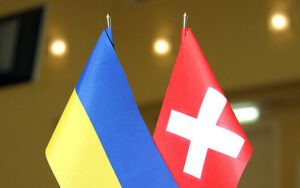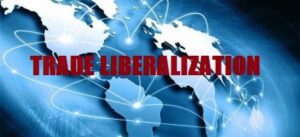
Yaroslav Zheleznyak, People’s Deputy of the Holos faction, announced that there was a proposal to the President for the appointment of former Prosecutor General Irina Venediktova as Ukraine’s Ambassador to Switzerland, but there is no official information about the decree yet.
“Now there is an ambassador to Switzerland – Irina Venediktova,” Zheleznyak wrote in Telegram on Wednesday.
At the same time, the media, citing Foreign Minister Dmitry Kuleba, report that he signed a submission to Ukrainian President Volodymyr Zelensky on the appointment of Venediktova as ambassador to Switzerland.
Zheleznyak later added in a Telegram that “officially it is still unknown whether the president signed, but there is already a submission from the Foreign Ministry.”
The agency does not currently have official information about the appointment of Venediktova as the head of the diplomatic mission of Ukraine in Switzerland.

Against the background of the war and with the aim of reconstruction, Switzerland will strengthen support for Ukraine, Swiss President Ignazio Cassis said.
“Switzerland will double the funding in the framework of bilateral cooperation with Ukraine to more than 100 million francs by 2023 … Responding to the call of the Prime Minister (Denis Shmyhal), we will allocate at least 15 million francs for digital transformation,” he said at the Conference on the restoration of Ukraine in Lugano on Tuesday.
The President added that Switzerland also allocates funds to Ukraine on a multilateral basis through the UN, the World Bank, the EBRD and other organizations.
Cassis noted that the principles formalized later on Tuesday in the Luhansk Declaration would make it easier for Ukraine to raise funding for the Recovery Plan.

Switzerland will invest in public and private projects to reduce greenhouse gas emissions in various fields of activity of Ukraine: infrastructure, construction, transport, energy.
The relevant agreements were reached between Minister of the Environment of Switzerland Simonetta Sommaruga and Minister of Environmental Protection of Ukraine Ruslan Strilets during the Ukraine Recovery Conference in Lugano (Switzerland).
“We have made the first practical step for Ukraine to introduce market mechanisms of the climate agreement, create new climate financing channels in Ukraine and incentives for green development for Ukrainian business… I am convinced that the agreement between our governments is a good start for the ‘green’ post-war reconstruction of Ukraine and the achievement of climate goals under the Paris Agreement,” the minister said on Facebook on Monday.
Strilets clarified that Ukraine had pledged to provide Switzerland with verified results of reducing carbon emissions into the atmosphere in return for the investments received.

Switzerland will hold an international conference on the restoration of Ukraine on July 4-5, the EFE news agency reported on Monday.
The conference, which will be held in Lugano, will be organized by the Swiss government together with Ukrainian representatives. It is expected that the discussion of the restoration of Ukraine will be held in four main directions: social, economic, environmental and infrastructural.
It is expected that the meeting will be attended by delegations from European countries, as well as from Canada and the USA. Representatives of international organizations, including the World Bank, are expected to attend the event.
In parallel with the conference, a cultural program is planned: concerts of classical and jazz music with musicians and artists from Ukraine.

The Ukrainian delegation during the WTO ministerial conference held about two dozen bilateral talks on possible trade liberalization and removal of existing barriers, in particular, in trade in agricultural products, Deputy Economy Minister – Trade Representative of Ukraine Taras Kachka said.
“The main conclusion is that the world believes in Ukraine and is ready to open markets for Ukrainian products. This means that the world believes in our victory over the aggressor,” he wrote on Facebook after the conference.
Kachka also said that Ukraine has sent a request to the European Free Trade Association (Switzerland, Norway, Iceland, Liechtenstein) to update the free trade agreement, and it will be considered next week within the framework of the EFTA institute.
According to the trade representative, he discussed further steps to liberalize trade, having carried out preparatory work right at the conference, with Canadian Minister of International Trade Mary Ng.
Kachka added that he agreed with the Minister of Trade of Australia in a few days after the conference to discuss in detail the possibilities of liberalizing bilateral trade (GSP and FTA).
The Ukrainian trade representative also said that he had discussed the conclusion of an agreement on digital trade with UK Secretary for International Trade Anne-Marie Trevelyan.
“The same issue – trade liberalization and digital trade – were relevant in a conversation with the Minister of Trade of Singapore. Singapore is ready to become a hub for trade in Ukrainian products in Asia,” Kachka added.
According to him, at a meeting with the Minister of Trade of Senegal, he emphasized that Ukraine is doing everything to increase exports and feed Africa.
“Senegal is chairing the African Union this year and their understanding of the true causes of food problems is very important,” the Ukrainian trade representative said.
AUSTRALIA, CANADA, ICELAND, LIECHTENSTEIN, NORWAY, SWITZERLAND, TRADE LIBERALIZATION

The international conference on the reconstruction of Ukraine after the war will be held in the summer in Lugano, said Swiss President Ignacio Cassis.
“The conference, co-organized by Ukraine with Switzerland, will be held in Lugano, Switzerland in early July this year,” Cassis said at the annual World Economic Forum in Davos on Monday.
According to him, this will be a conference on the reconstruction of Ukraine.
“When the war is over and the guns are silenced, all our efforts must be focused on reconstruction. Let the reconstruction and elimination of Ukraine’s economic consequences go through a broad political and diplomatic process. The Lugano conference is an opportunity to discuss this difficult path to recovery with all key stakeholders. parties, “he added.
According to Cassis, the conference will be a starting point in the process of rebuilding Ukraine.
According to the President of Switzerland, 40 countries and 17 international organizations have been invited to take part in the high-level conference.